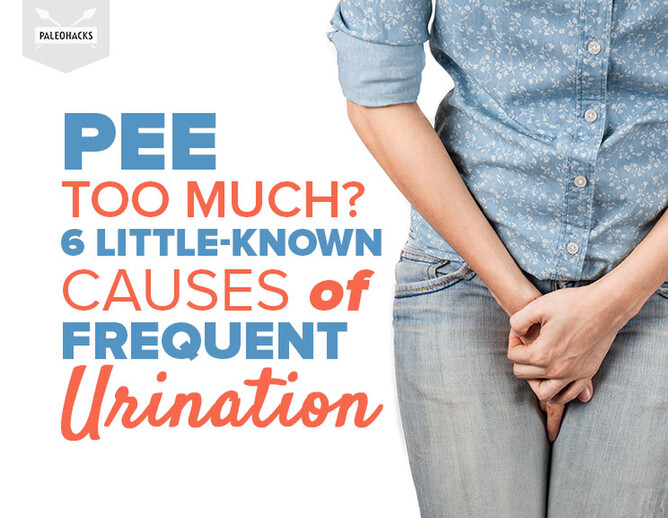There is nothing more annoying at work, or during a social event, than to have to constantly get up to use the bathroom. Not only is it uncomfortable and annoying, it can also be quite embarrassing for some. The good news is that you're not necessarily stuck with a lifetime of frequent visits to the "loo." Instead, it's likely just a sign that something in your health or diet is out of balance.
Most people pee between 4 and 8 times a day.You may be wondering how much is "normal" to pee in one day? The typical urine output in a 24-hour period varies between 4-8 times daily, depending on food and liquid intake and activity level. You may be peeing more often because its hot outside and you're drinking more water, or perhaps work has been busy and your caffeine intake has increased. On the other hand, increased urination can also be a red flag for more serious medical conditions.
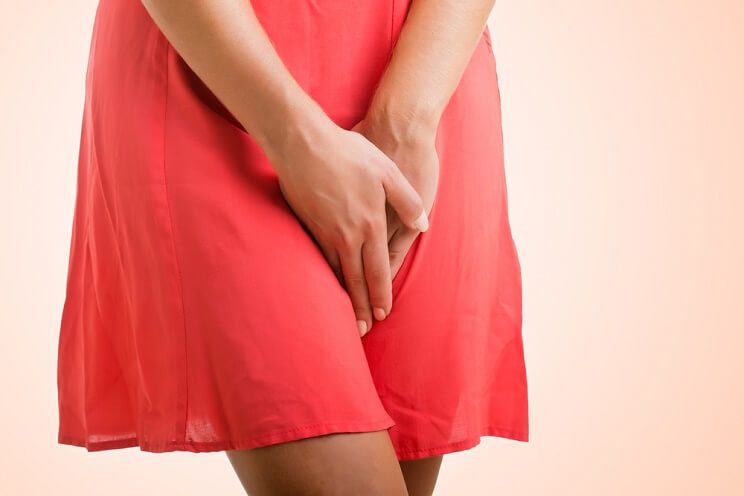
When your bladder is stretched, there is an automatic feedback mechanism that signals your brain to trigger the urge to urinate. Frequent urination can be cumbersome in the workplace, so many people decide to simply "hold it" for longer periods of time. While this may help you get more work done, the longer you hold your urine, the increased likelihood of bacterial infections, which can spread to your kidneys and cause more serious problems.
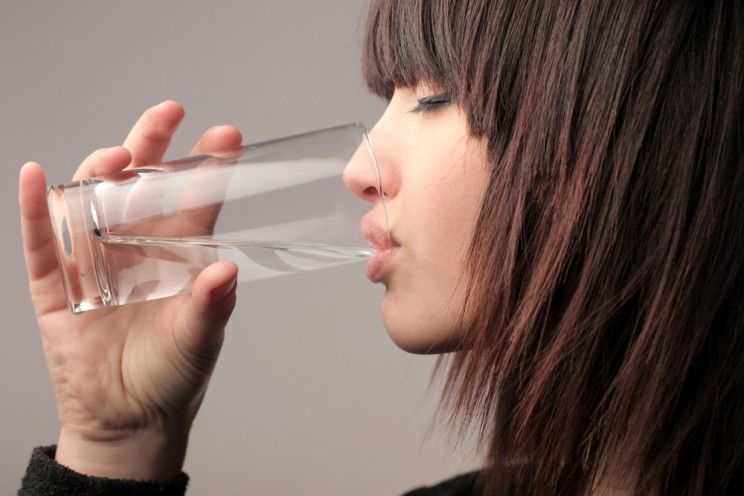
If you chronically drink a lot of water, and still pee frequently, you may be drinking too much water. Distilled water can flush out sodium from the body, resulting in increased thirst and urination. Losing too much sodium is called hyponatremia, and it's a common problem in runners who overconsume water, thinking that "more is better." (3) If you've just started drinking additional water, it may take your kidneys a couple of weeks to modify the absorption rate, so it's normal to go the bathroom more often.
Drink less coffee and alcohol to avoid taking too many trips to the bathroom throughout the day.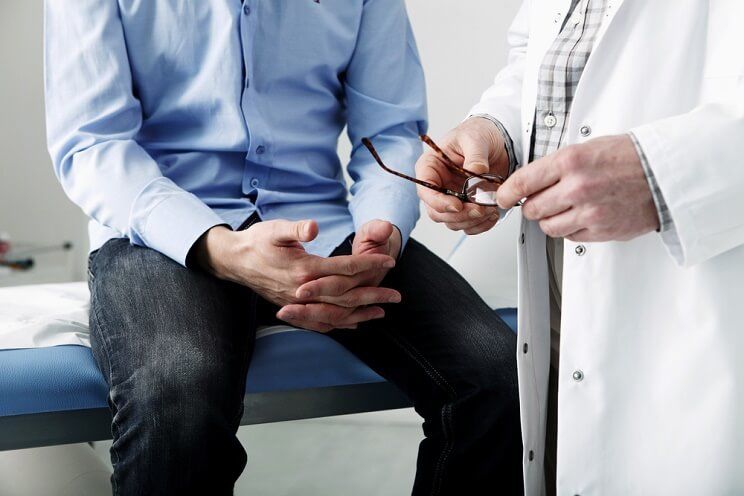
For men, as you get older, you may notice an increase in urination frequency, often considered a normal sign of aging. If your trips to the bathroom have significantly increased recently, it may be a sign of an enlarged prostate gland pressing up against your bladder and triggering the urge to urinate. (5) Often in this situation, only small amounts of urine are voided each trip. Talk to your doctor if these symptoms sound familiar.
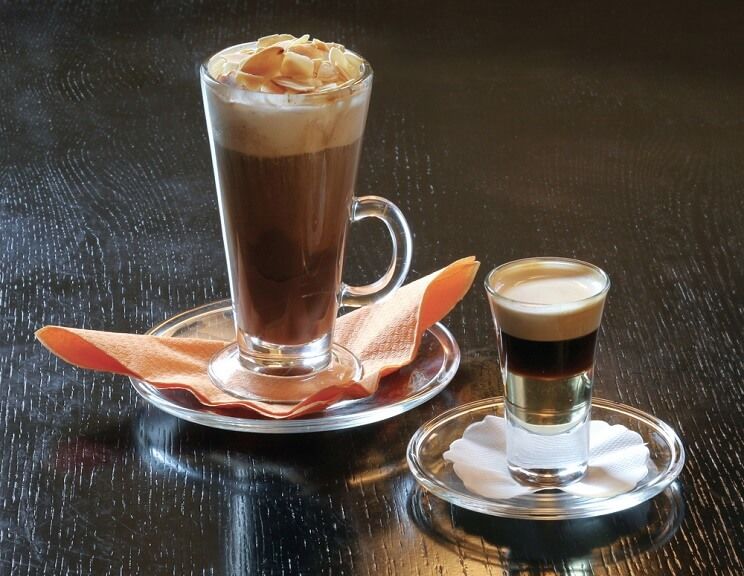
If you're struggling with frequent urination, you need to address the root causes, one of which is often the overconsumption of caffeine, alcohol and sugar. Removing these from your diet for 4 weeks typically leads to improvements in symptoms, mild for some people and dramatic in others. Also, make sure you're not drinking too much water; restrict your intake over the next 4 weeks and drink only when thirsty.
Exercise your Kegel muscles to improve bladder control.Having to pee constantly throughout the day is likely a signal that something in your health or diet is out of balance. You don't need to live with this discomfort or annoyance. Retrain your brain, remove dietary triggers, and rebuild the supporting musculature to restore normal urine frequency.
(Read This Next: How to Cure a UTI (Without Going to the Pharmacy))
Most people pee between 4 and 8 times a day.You may be wondering how much is "normal" to pee in one day? The typical urine output in a 24-hour period varies between 4-8 times daily, depending on food and liquid intake and activity level. You may be peeing more often because its hot outside and you're drinking more water, or perhaps work has been busy and your caffeine intake has increased. On the other hand, increased urination can also be a red flag for more serious medical conditions.
Should I Just "Hold It" for Longer?

When your bladder is stretched, there is an automatic feedback mechanism that signals your brain to trigger the urge to urinate. Frequent urination can be cumbersome in the workplace, so many people decide to simply "hold it" for longer periods of time. While this may help you get more work done, the longer you hold your urine, the increased likelihood of bacterial infections, which can spread to your kidneys and cause more serious problems.
6 Common Causes of Frequent Urination
Let's take a look at some of the most common causes of frequent urination.1. Infection
If you have a urinary tract infection (UTI), you'll have to go to the bathroom more frequently and you'll likely know something is wrong, because you'll also have pronounced pain or discomfort. This is much more common in women as the urethra is much shorter than in men, thus bacteria have a shorter distance to travel to the bladder, increasing the risk of infection. (1) If you have a UTI, talk to your doctor or naturopath about the right treatment for you.2. High Blood Sugars
If you go the bathroom frequently, it may be a sign your blood sugar levels are on the rise. We often associate diabetes with overweight individuals, but skinny people can also have poor blood sugar control. Chronically high blood sugar levels lead to increased thirst, hunger and urination, and are an early warning sign of pre-diabetes. (2) If you suspect a problem, a specific blood test (i.e., HbA1c) can assess your blood sugar control over the past 3 months and uncover if the early signs of a problem exist.3. You Drink Too Much Water

If you chronically drink a lot of water, and still pee frequently, you may be drinking too much water. Distilled water can flush out sodium from the body, resulting in increased thirst and urination. Losing too much sodium is called hyponatremia, and it's a common problem in runners who overconsume water, thinking that "more is better." (3) If you've just started drinking additional water, it may take your kidneys a couple of weeks to modify the absorption rate, so it's normal to go the bathroom more often.
4. Too Much Coffee or Alcohol
Caffeine and alcohol are diuretics, which means they trigger increased urination. They actually block the anti-diuretic hormone (ADH), which, as the name suggests, prevents you from peeing frequently. (4) Once you remove this natural inhibitory mechanism with too much coffee, tea, chocolate or alcohol, it can lead to more frequent trips to the bathroom.Drink less coffee and alcohol to avoid taking too many trips to the bathroom throughout the day.
5. Enlarged Prostate

For men, as you get older, you may notice an increase in urination frequency, often considered a normal sign of aging. If your trips to the bathroom have significantly increased recently, it may be a sign of an enlarged prostate gland pressing up against your bladder and triggering the urge to urinate. (5) Often in this situation, only small amounts of urine are voided each trip. Talk to your doctor if these symptoms sound familiar.
6. Blood Pressure Meds
One of the most common types of drugs to treat high blood pressure are diuretics known as "water pills," which remove sodium and water from the kidneys, allowing your blood vessels to relax. If your trips to the bathroom are getting annoyingly high, talk to your doctor about diet, exercise and lifestyle interventions for treating high blood pressure. (6)Solutions for Overactive Bladder
If you feel like you make one too many trips to the bathroom, here are natural ways to treat an overactive bladder.The Bladder Brain-Hack
While it's not good to hold out for too long, retraining your body to wait longer and longer between trips to the bathroom is helpful. Each week, try and lengthen the amount of time between "pee breaks," gradually increasing the amount of time over a couple of months. This helps to reboot your brain and decrease the urgency to urinateRemove Dietary Triggers

If you're struggling with frequent urination, you need to address the root causes, one of which is often the overconsumption of caffeine, alcohol and sugar. Removing these from your diet for 4 weeks typically leads to improvements in symptoms, mild for some people and dramatic in others. Also, make sure you're not drinking too much water; restrict your intake over the next 4 weeks and drink only when thirsty.
Retrain Your Muscles
If your pelvic floor muscles around your bladder become weak, it can lead to increased frequency or urgency to urinate. Retraining these muscles using Kegel exercises is a great way to improve bladder control. Perform for 5 minutes daily, 5 days per week.Exercise your Kegel muscles to improve bladder control.Having to pee constantly throughout the day is likely a signal that something in your health or diet is out of balance. You don't need to live with this discomfort or annoyance. Retrain your brain, remove dietary triggers, and rebuild the supporting musculature to restore normal urine frequency.
(Read This Next: How to Cure a UTI (Without Going to the Pharmacy))
